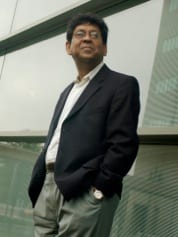
Professor of Genetic Medicine
Johns Hopkins University School of Medicine
ASHG: If you had a choice, would you teach more or spend more time on your research? Why?
Dr. Chakravarti: Given the choice TODAY, I would do more teaching. The answer I have given is surely true today for me but might not have been true a decade ago and was surely false twenty years ago.
Today, human genetics is in an exciting stage where we can produce copious amounts of data and we are in a hypothesis-free mode. However, many, if not most important biological and genetic problems remain unsolved given our thirst for gene discovery. Since gene discovery is only the very first step towards the understanding of human phenotypes, we have much ground to cover.
I believe that teaching has gained increased priority for me so that I can do my part to emphasize the questions and the science of human genetics rather than the technology.
ASHG: If you could go back to when you were a trainee, what is one piece of advice you would give yourself for your current career?
Dr. Chakravarti: I would have focused my attention on a few problems and few related phenotypes and probed their genetics much deeper, rather than in my early career where I spread my attention too thinly across too many problems.
ASHG: Can you describe your transition from trainee to working professional? How did you land your first “real” job?
Dr. Chakravarti: I abandoned my postdoctoral fellowship after about 6 months, since I was not learning anything new and at a time when human genetics had obtained its new power through RFLP and other molecular analyses. My first real job was a real job: teaching 4 courses of Biostatistics and Population Genetics in the School of Public Health at the University of Pittsburgh.
I came to love this ‘predicament’ since my free time was truly free, I came to interact heavily with a brilliant teacher and researcher (C.C. Li) and I had the occasion to be a technician in someone else’s lab to learn recombinant DNA methods. A chance encounter brought me in touch with Haig Kazazian at Hopkins (now my colleague) and my research into molecular genetic variation.
The lesson is to create your own path.
Want more interviews? Join the ASHG Trainee Forum to keep up with new ones!
